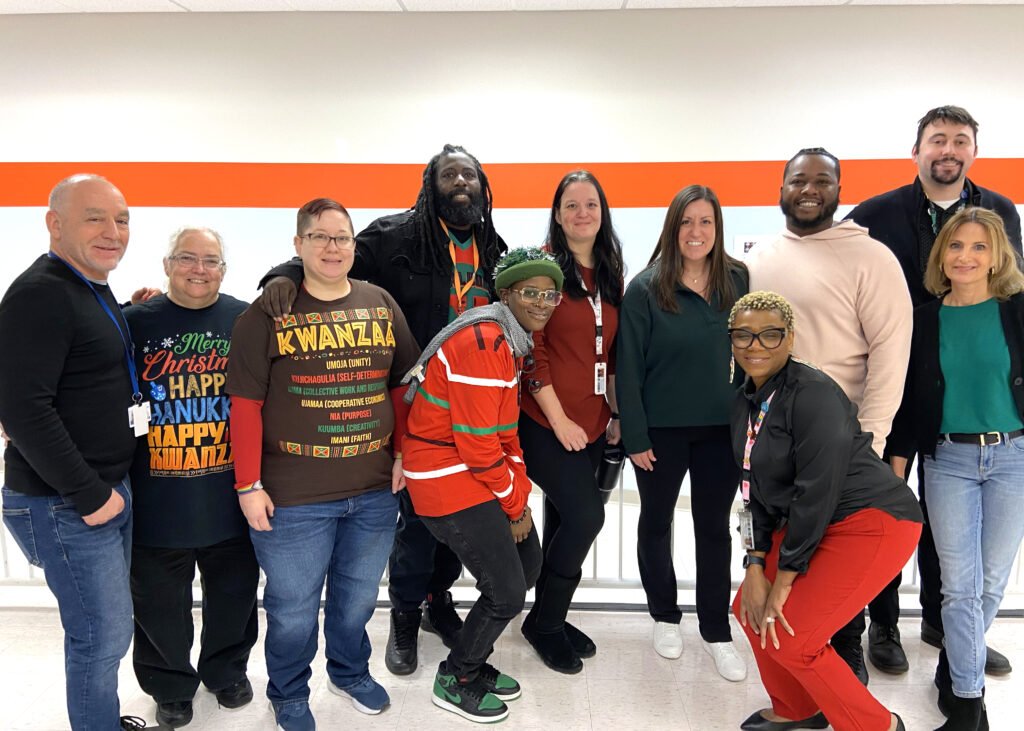One could say that the Academy360 nurses’ offices are the heart of the schools. There, students receive everything from medical care to a reassuring hug from the ever-busy nursing professionals dedicated to providing the best care to the children and young adults in their charge. While all school nurses are expected to with care for the needs of their students, ministering to students with autism and related disabilities can be a more complicated task. Many individuals with autism have common co-occurring disorders such as seizures, gastrointestinal problems like acid reflux and irritable bowel syndrome, low muscle tone, multiple allergies, and mitochondrial DNA problems like Fragile X syndrome. Additionally, ADHD and anxiety are common.
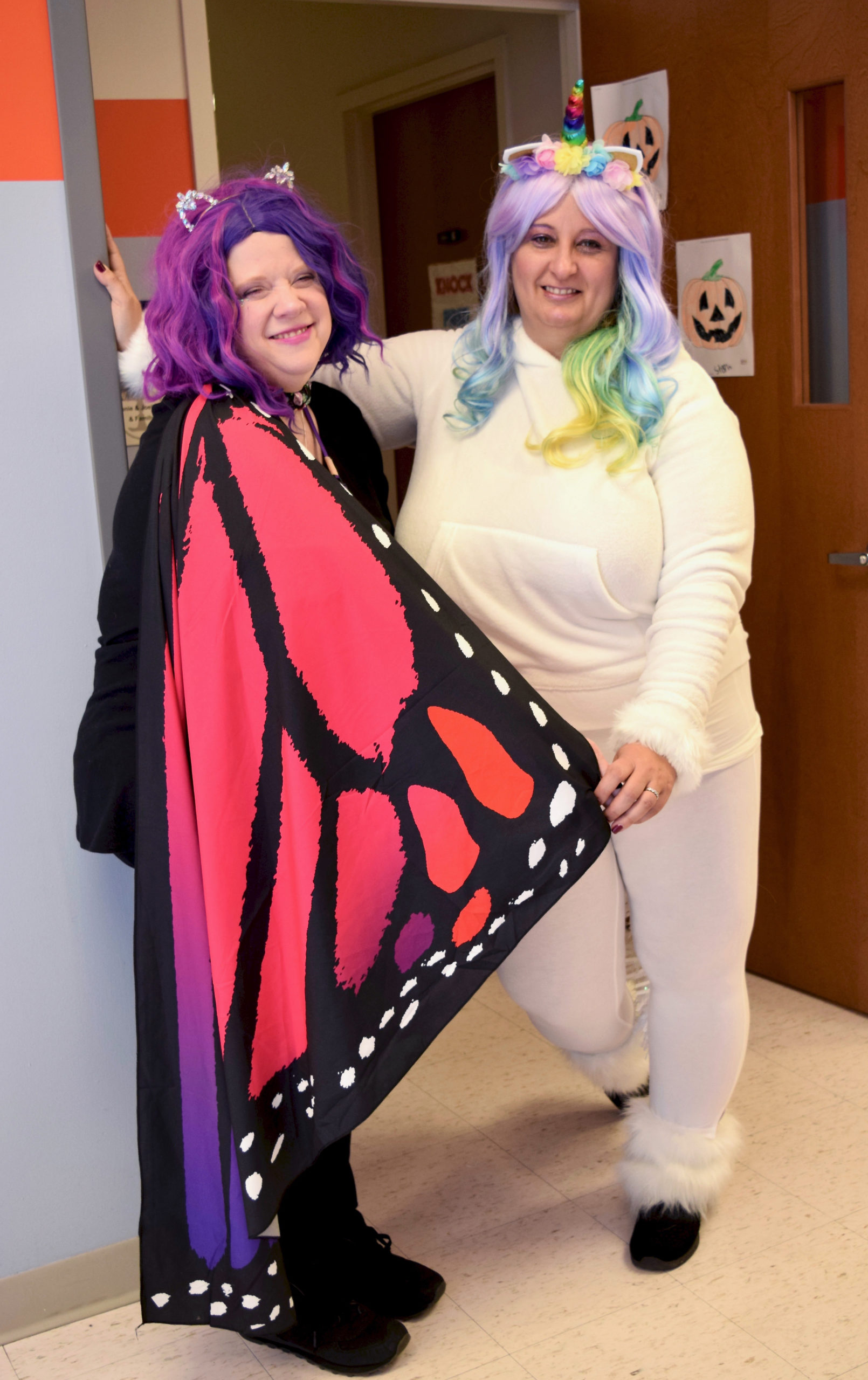
A consistent flow of visitors keeps the school nurses on their toes juggling a lengthy list of responsibilities: monitoring and administering medications, treating minor injuries and illnesses, assisting teachers running in toileting and hygiene programs, and responding to emergencies. Nurses also conduct vision, scoliosis, and other screenings, maintain student records and participate in student case reviews as needed.
A360’s Upper and Lower schools employ four staff nurses, as well as several traveling nurses who accompany students on class outings, after-school program activities, and overnight respite trips.
Nurses Connie Kilroy and Terry Farley are stationed at Academy360 Upper School, where the expanding student population keeps things exciting.
“Sometimes I feel like I’m spinning like a top,” says Nurse Terry. “It can be comical how busy we are,” she says, laughing.
Nurse Connie adds, “I think of every day as a surprise party – you never know what’s going to happen, so you have to be prepared for anything that comes your way.”
Academy360’s nurses not only care for students but also prepare school staff for emergencies as well. They ensure staff is CPR-certified, and that designees are trained in administering epinephrine and glucagon treatments to students with asthma or diabetes conditions. Nurses also conduct blood pathogen training, instruct teachers on identifying and responding to seizures, and review 911 procedures.
In addition to training staff, they also work with students who need assistance in taking daily medications. A number of students are diabetic, and A360’s nurses assist them in learning how to manage their condition.
“We try to make them as independent as possible,” says Nurse Connie. “We teach them how to monitor their blood sugar, administer their insulin, and how to make sure they have all their equipment with them before leaving on trips.”
Not all students, however, are comfortable receiving medical assistance. For many children on the spectrum, visiting a nurse or doctor is an uncomfortable and sometimes disturbing experience. For A360’s nurses, knowing how to approach each child according to their comfort level is paramount.
Rebecca Casey, the Lower School’s primary nurse for four years, follows what she refers to as “sensitive nursing” guidelines when treating students who visit her office for medical reasons.
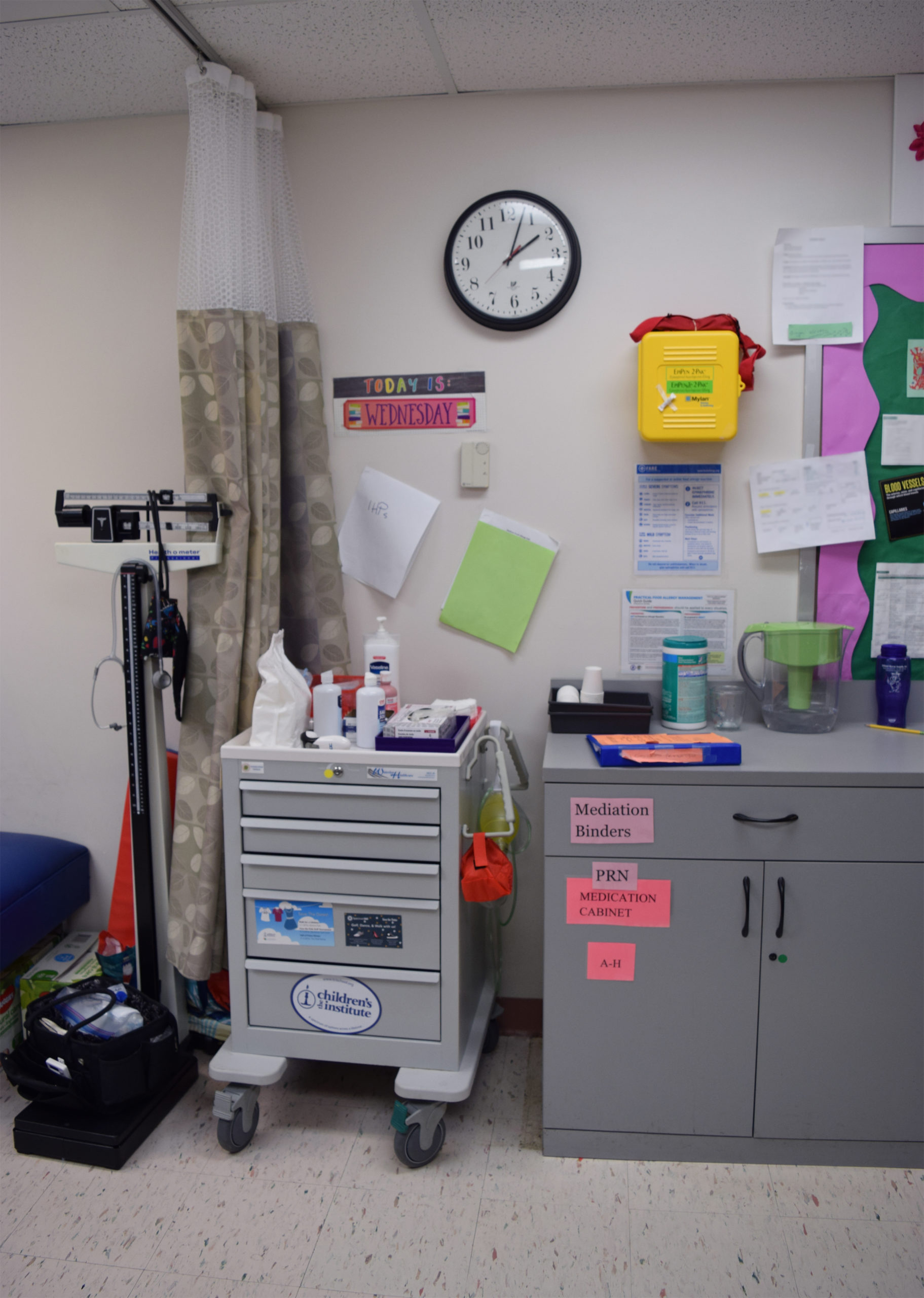
“For some students, something such as a minor cut can be a major incident, and it’s important not only treat the problem but to soothe the distress that accompanies it,” says Nurse Rebecca. “That means adopting a calming manner, maintaining a peaceful environment, and bringing them down from whatever stressors that are triggered by what’s happening.”
“Hopefully by making a visit to the nurse’s office less threatening, it will help them fear doctor visits less, too.” She makes a point of ensuring that the nursing office is a warm inviting environment, rather than cold and clinical. And, there are times when a student is more comfortable visiting with her in the classroom. “I recently had a student who had an abscess in his mouth. In my office, he refused to even open his mouth for me. When I went to see him in his classroom, he immediately came over, sat in my lap and opened wide!” she said. Clearly, our nurses are flexible in their approach!
For A360’s nurses, working with the students is more than a job, it’s a calling! There is a lot of love for the students they care for, which makes the hard work worth it.
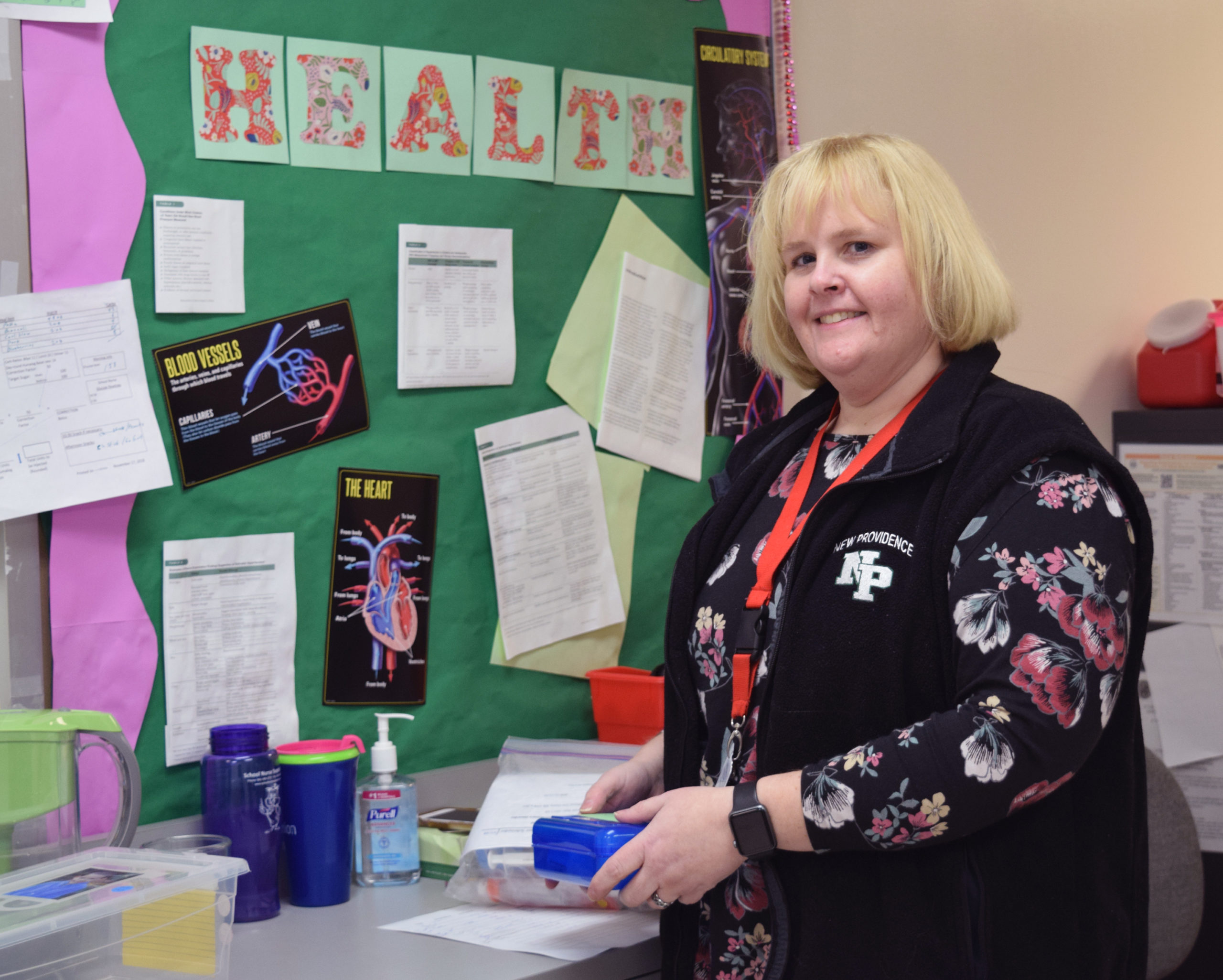
“I call myself ‘Mommy Away From Home’,” says Alice Palmer, one of A360 Lower School’s nurses. For Nurse Alice, working at Spectrum360 is a real-life family affair, as she is married to Randall Palmer, S360’s Director of IT.
Nurse Connie, who has been with Spectrum360 for five years, adds, “They’re like our own [children] – we spend a lot of time with them, sometimes more than our own!”
“Getting to interact with the students, getting to know them – that’s the greatest part,” she continues. “We see them regularly and forge rewarding relationships. One of the kids came in yesterday and noticed I got my haircut and said, “You look nice.” He’s not a particularly verbal kid, so for him to say that, to notice it, was great.”
Nurse Terry came to Spectrum360 after spending nearly two decades as a NICU nurse, starting as a part-time nurse who went on class trips, after-school program activities, and respite nights.
“It was nice being there and watching them learn and seeing them how far they’ve come,” she says. “Our students are just so refreshingly honest. Whatever mood they are in, that’s their mood. There’s no guile whatsoever.”
“It’s wonderful to see them progress, develop skills, improve behaviors,” Nurse Connie agrees. “It really is the reason why we wake up and come in every day.”
Lisa Crouch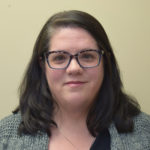 is the Assistant to the Public Information Officer. Prior to working at Spectrum360, she worked at Yahoo, MSN, The Bergen Record, and other media outlets. She has a BA in English Literature from Columbia University. She is the proud aunt of an Academy360 Lower School student. In her off time, Lisa is a digital artist and writer.
is the Assistant to the Public Information Officer. Prior to working at Spectrum360, she worked at Yahoo, MSN, The Bergen Record, and other media outlets. She has a BA in English Literature from Columbia University. She is the proud aunt of an Academy360 Lower School student. In her off time, Lisa is a digital artist and writer.

